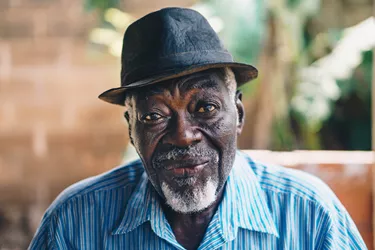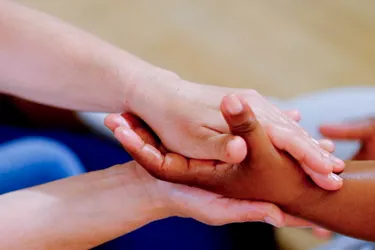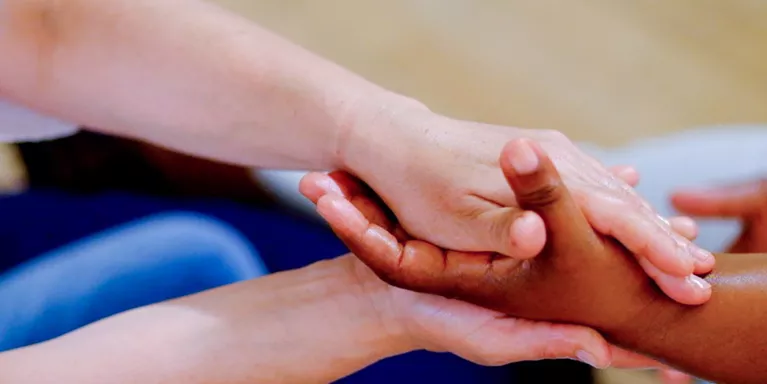Sharing experiences with others
Rajvi blogs about how sharing her experiences in a peer support group helped her regain confidence and eventually return to work.
My first experience of peer support was about five years ago, with my local Mind. I was asked to join a peer-led social inclusion group. Bit of a mouth full, I know. But essentially this involved being part of social activities with other people who had lived experience of mental health difficulties: my peers.
I vividly remember the first social event for various reasons.
I met new people who had similar interests (at the time, I couldn't get anyone I knew to attend a meditation class!). I didn’t know the other peers very well, but I respected them, and felt a sense of togetherness.
I never asked if they felt the same, and we never spoke about our respective problems, so on reflection, I do ask myself what created this sense of positive group identity in such a short space of time?
Maybe it was borne out of respect for the local Mind that we were all part of. Maybe just knowing we all shared something in common was enough. I didn't need to know their specific troubles, or they, mine. This was a social group, not therapy.
I also had some responsibility for coordinating the group, having been given a ‘work’ phone. This small act of trust was really significant. My self-esteem was very low at the time. I felt I couldn't organise a trip to the supermarket for myself, let alone a group of people.
"It might sound silly, but giving me that mobile phone was super empowering. A feeling that had been dormant for years."
Unfortunately the funding for the project was not renewed. I wanted to continue this peer journey, so searched for a new path to explore. My next step led me to a self-help group. I was so, so nervous about this.
Due to stigma and self-censorship, talking about my mental health problems was painful. Due to social anxiety, sharing in a group setting of strangers was doubly painful.
It was made clear at the outset there was no pressure to share. I took this literally and glued my lips shut. This decision was actually a blessing, because rather than being filled with nerves about the spotlight falling on me to talk, I could free up my mental space to fully listen to other people.
The stories shared were a personal revelation. Behaviours and thoughts I had kept secret and hidden for years were being mirrored by the words of others.
"Things I was ashamed of and felt guilt for were common in the group. It was a profound and powerful experience."
There were coping techniques I learnt about that day which I still use.
My next peer support experience was quite different. A few years back I was ready to make the transition from volunteering to paid work after a period of being unwell. I was actively looking for jobs that positively valued lived experience of mental health difficulties. This narrowed my opportunities, but I was determined.
After four unsuccessful interviews, I applied for a peer support role with a London NHS trust. By this point my confidence was pretty low. My social anxiety and lack of experience in paid work made the application and interview process very difficult. However, this role appeared different. The job description was uncomplicated. The criteria page was only one side long and fit like Cinderella’s shoe!
"This time I was successful and the job was a game changer – putting me back on a career path."
I worked one to one, in the community, with people leaving crisis care. I met my peers in their homes and coffee shops and had weekly group supervision with other peer support workers in the local trust.
There is a school of thought that states being paid for peer work, tips the ‘balance of power’ that many believe lies at the heart of good peer support. Taking something organic and natural and sterilising it via professionalism. For the most part, my experience as a peer support worker did not match this perception entirely.
The job afforded a lot of autonomy. When and where we met our peers, and what we talked about was guided by the relationship rather than the organisation I worked for. The respect I felt for my peers was the same as I felt five years ago, when volunteering for my local Mind.
"It was a judgment free zone."
Most of my peers saw me as an equal and I often heard ‘I like you, you are not like one of them’. I say most, because for some professional support is what they genuinely desired. The support was mutual. When I was going through a low patch, I often received reassurance and kind words.
There are many types of peer support. It is a matter of trying out which one works best for your circumstances. For me, it has been a source of inspiration, companionship, personal growth and reflection. I have also learnt you get out as much as you are willing to put in.
- Take a look at our information and directory to find out more about peer support.


Information and support
When you’re living with a mental health problem, or supporting someone who is, having access to the right information - about a condition, treatment options, or practical issues - is vital. Visit our information pages to find out more.
Share your story with others
Blogs and stories can show that people with mental health problems are cared about, understood and listened to. We can use it to challenge the status quo and change attitudes.

















